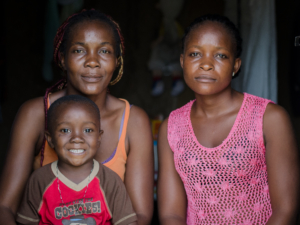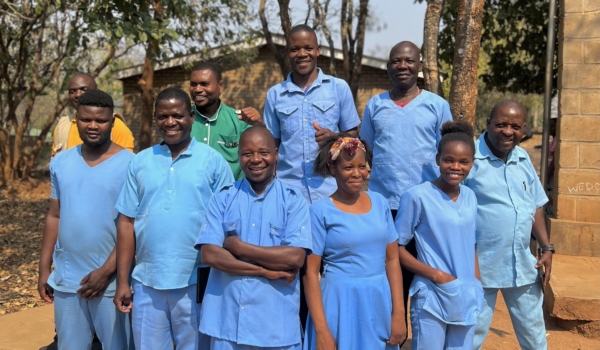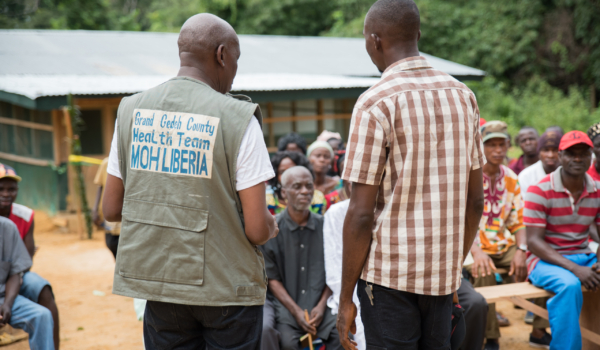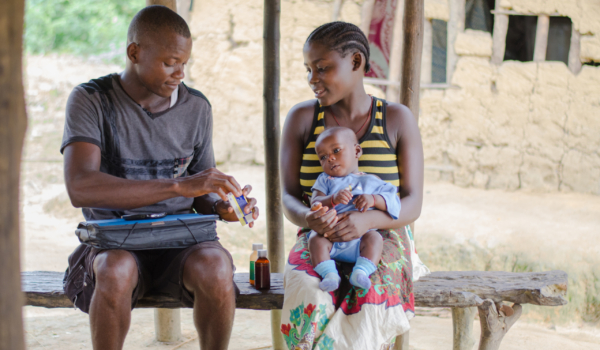As we look to expand Last Mile Health’s impact, the work of our existing Community Health Workers is a source of continual inspiration and learning. The story of Daniel, a patient who was treated for malaria in September 2016, illustrates progress in our effort to rapidly identify and treat childhood illnesses.
Deep in the rainforest of Liberia’s Rivercess County, the transient gold mining camp that three year-old Daniel, his family, and his Community Health Worker (CHW) Yassah Flomo call home is isolated from the nearest government clinic by both distance and poor infrastructure. The winding dirt road leading out of the town is zig-zagged by creeks and rivers. But in numerous places, the log bridges that allow vehicles to traverse the challenging terrain have decayed or collapsed, making travel difficult and expensive. Reaching the clinic in the town of Zammie, more than an hour’s motorbike ride away, comes at a cost that many families cannot afford.

Daniel, a three year-old child from Sand Beach community in Rivercess County sits on his mother Decontee Mulbah’s lap as they pose with CHW Yassah Flomo.
One rainy September morning, CHW Yassah was making community rounds to identify sick children when Daniel’s mother called for her to examine her child, who had fallen ill with fever the night before. After recording his symptoms, Yassah performed a rapid diagnostic test, diagnosed Daniel with malaria, and gave him his first dose of treatment. Hours later, Daniel’s condition was already improved, but Yassah would go on to follow up with home visits every day for the next three days to monitor his symptoms until he made a full recovery.
When Last Mile Health began work in Rivercess in 2015, only 46 percent of children under five with malaria received treatment from a formal provider. Now, thanks to the work of CHWs like Yassah, prevention efforts and community-based care are having a lifesaving impact.




